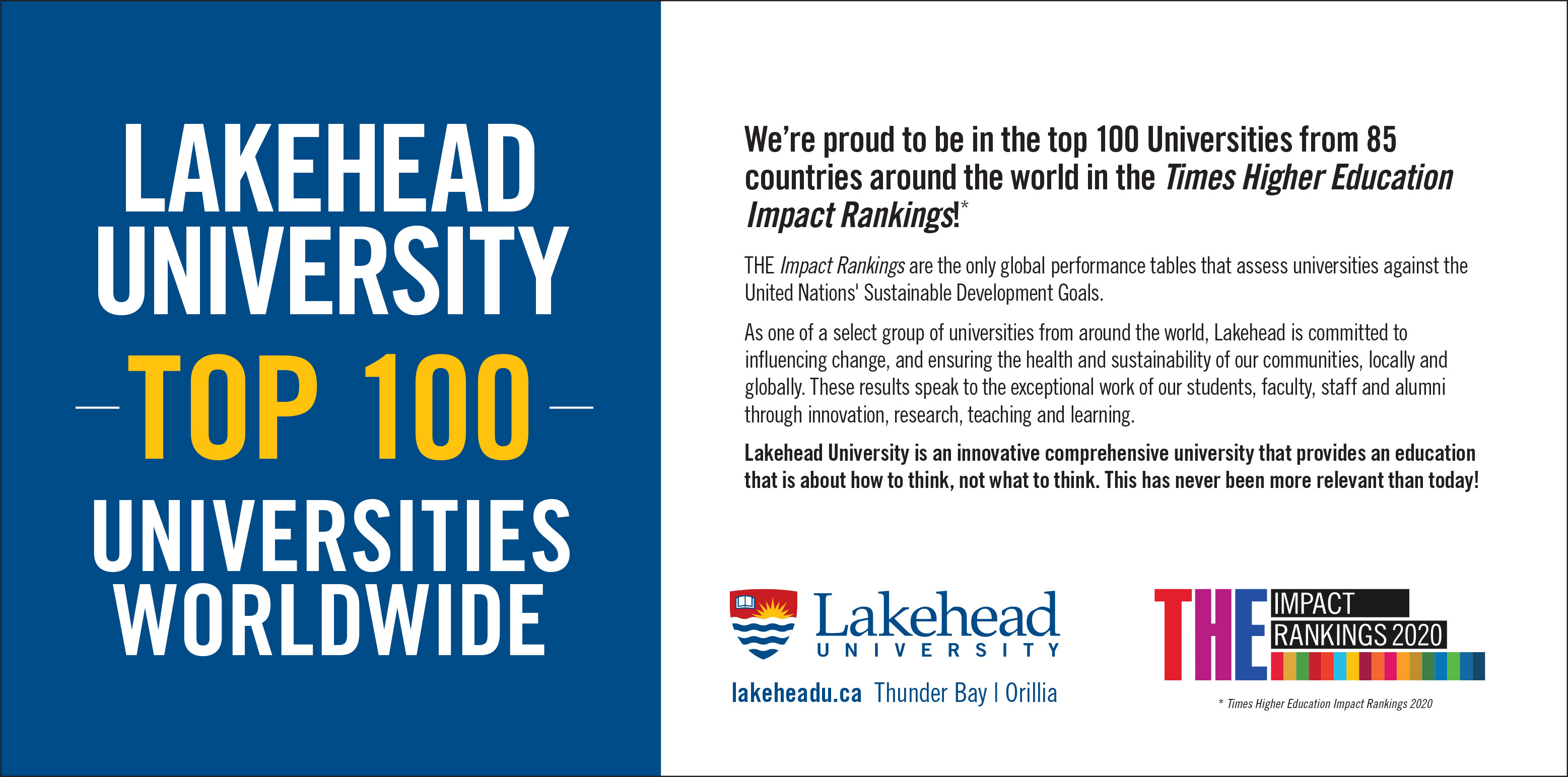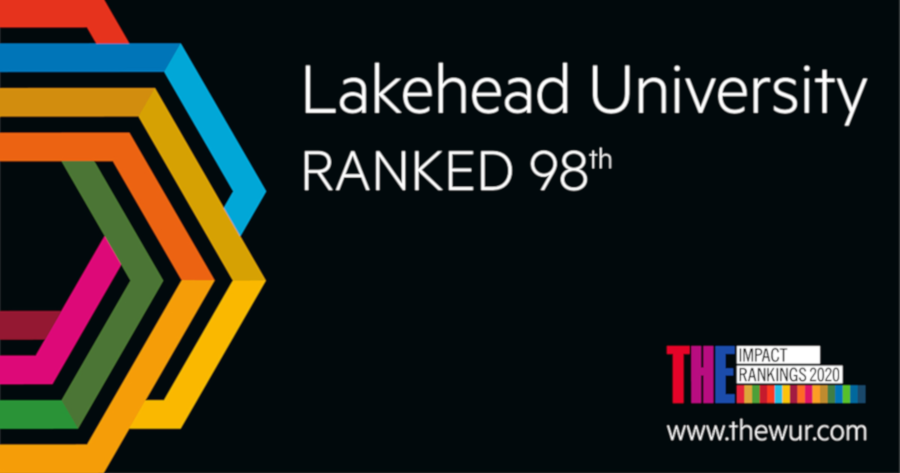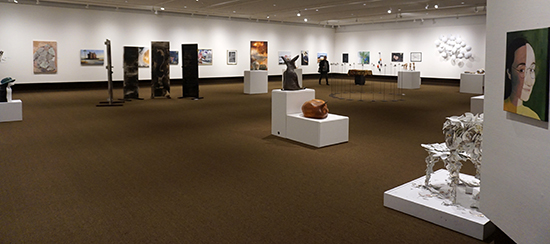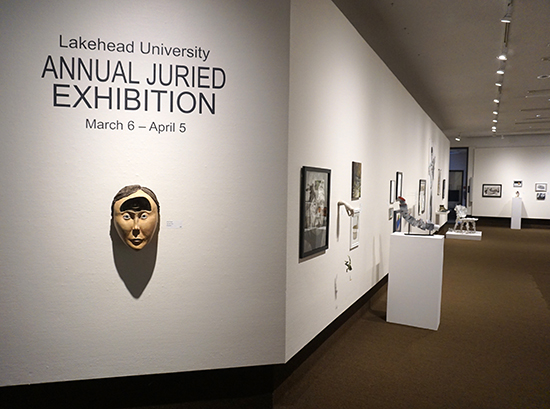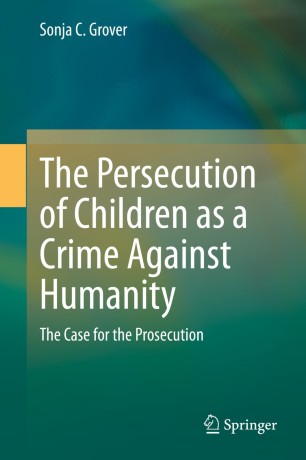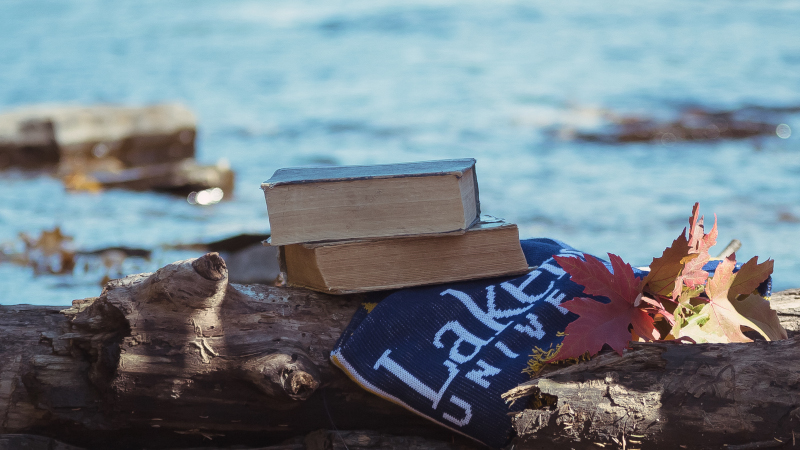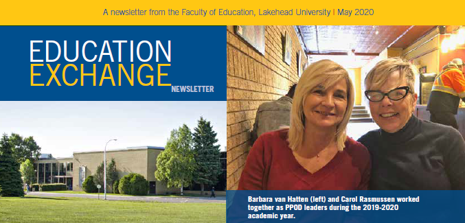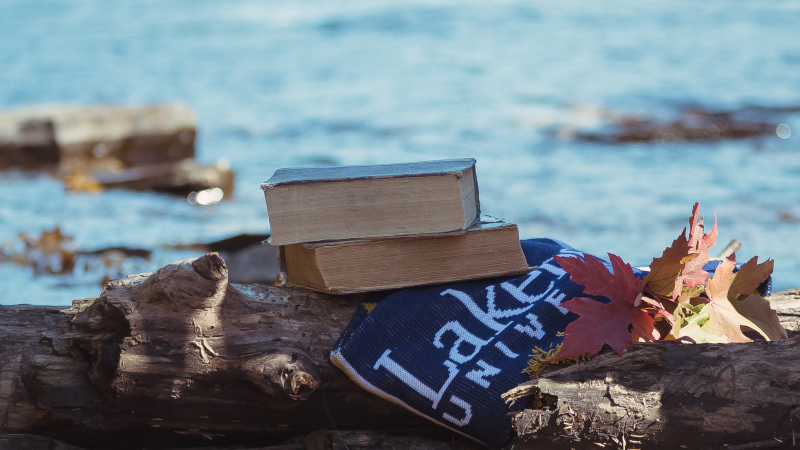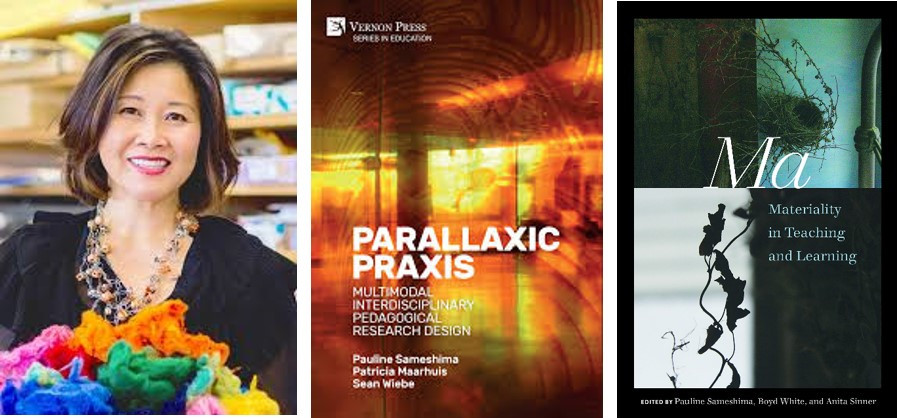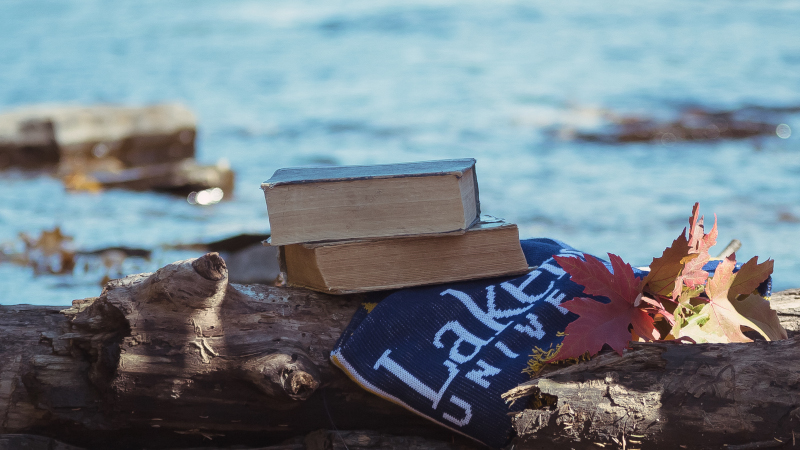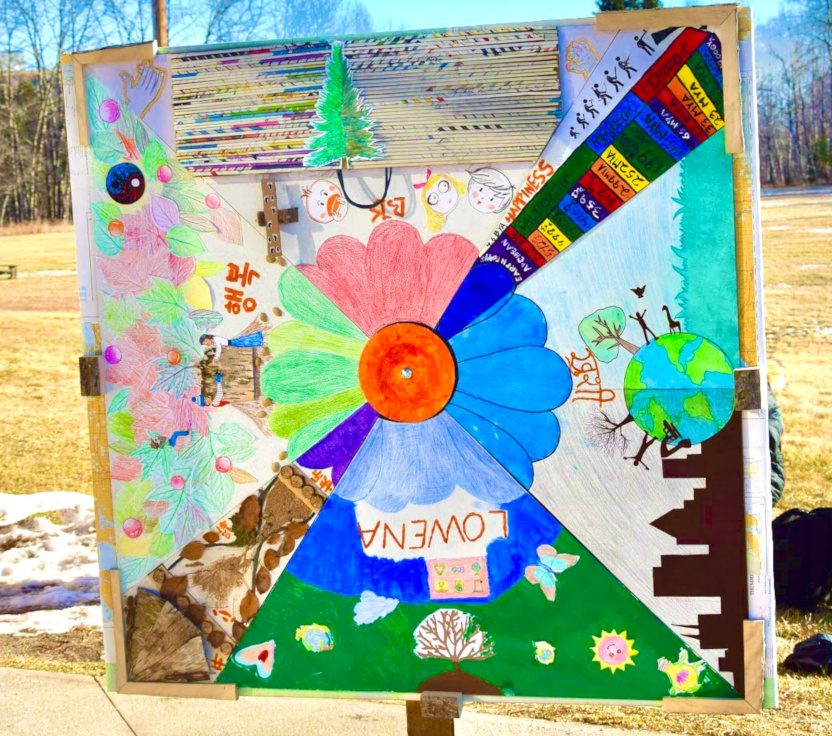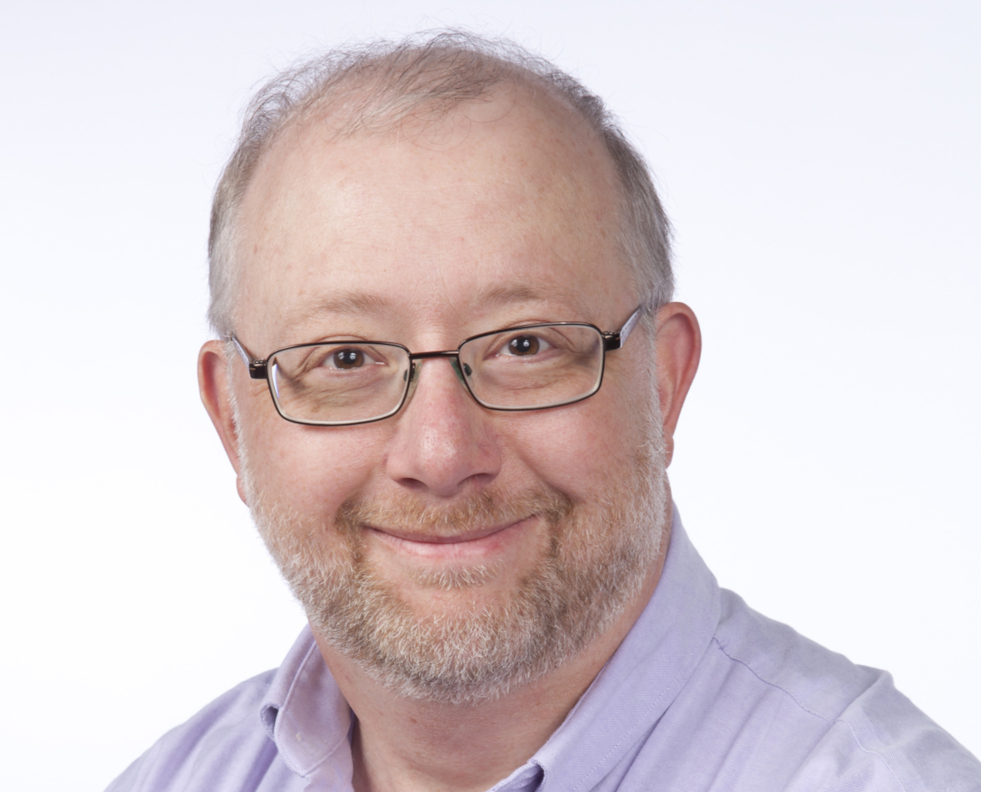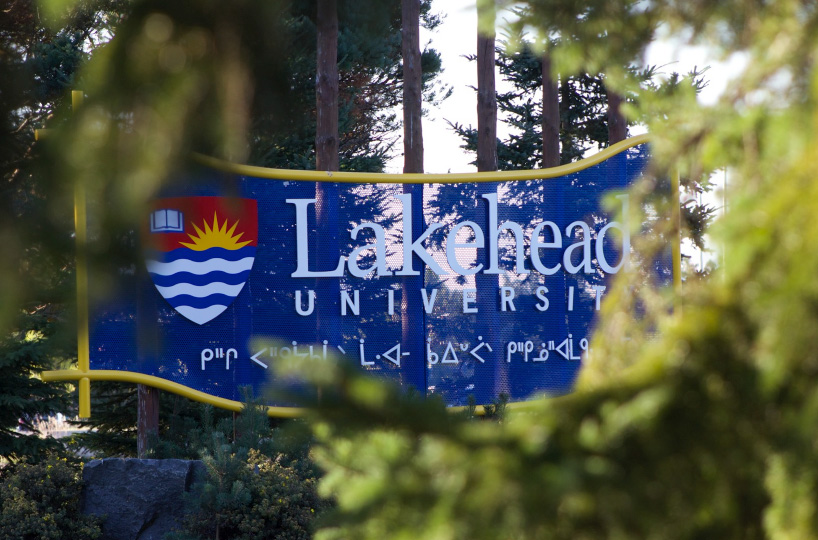December 16, 2020 – Thunder Bay, Ont.
For as long as Dr. Lindsay Galway can remember, she has been passionate about nature and its connection to people.
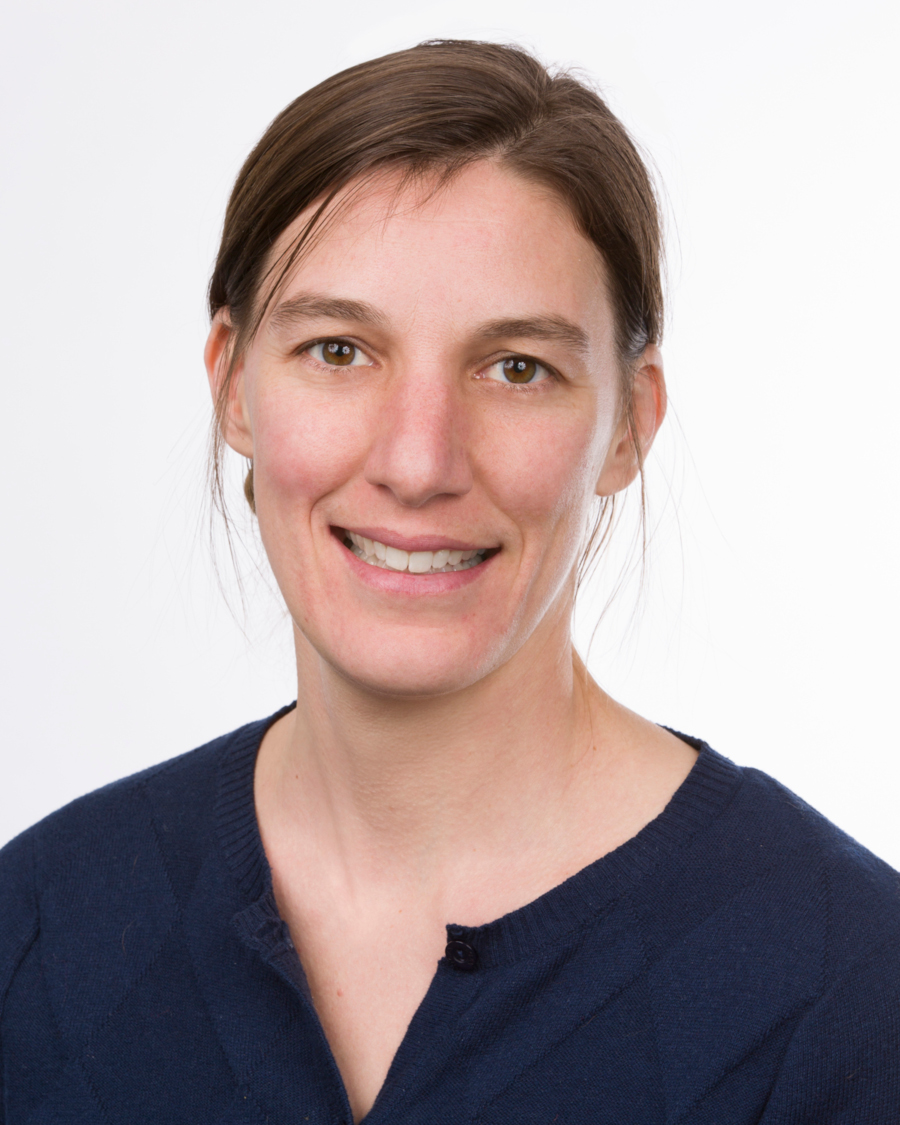
“Recently my mom said from a young age I had an interest in the interconnections between humans and ecosystems and a strong relationship with the natural world,” said Dr. Galway, an Associate Professor in Health Sciences at Lakehead University who was named as the new Canada Research Chair in Social-Ecological Health earlier today.
Dr. Galway’s desire to understand how climate and environmental change can affect health and health equity grew in the last 10 years – as scientists presented overwhelming evidence documenting the extent of human impact on ecosystems.
“Evidence increasingly illustrates that public health achievements made over the last century, often at the expense of ecosystem integrity, are rapidly eroding,” she said.
“Quite simply, people and populations cannot be healthy if ecosystems are not healthy, if our planet is not healthy.”
Then a sense of urgency set in six years ago when her first child was born.
“This may sound dramatic, but time is truly running out if we, as parents and ancestors, want to ensure that our children and grandchildren can live healthy and fulfilling lives.”
That is why Dr. Galway’s interdisciplinary research is so important, because of the dire consequences that humans will face if we do not make important changes to the way we live and govern.
She and her partners and team will investigate the impacts of climatic and environmental change on health and well-being; use place-based approaches to respond to, and address, climatic and environmental change in ways that promote sustainability, health, and social justice; and support integration, interdisciplinary research, and intersectoral action through methodological and practical innovations.
Using an interdisciplinary, applied, and community-engaged approach, Dr. Galway and her research partners will advance the emerging field of planetary health and inform public policy and action in Canada and beyond.
“The World Health Organization has emphasized that climate change is one of the greatest health threats of our generation, but it can also be one of the biggest opportunities of our time,” she said.
“Now is the time to address climate change. Now is the time to get serious about identifying and moving forward with policies and action that reduce greenhouse gases while also protecting and promoting health.”
Over the next five years, Dr. Galway and her team plan to share what they learn from their research using journal articles, presentations, infographics, reports, booklets, art, and even a beautiful quilt she has been making in collaboration with Fort William First Nation.
The Canada Research Chairs Program announced Dr. Galway’s new chair today along with renewals for Dr. Chris Mushquash, Chair in Indigenous Mental Health and Addiction; Dr. Michael Rennie, Chair in Freshwater Ecology and Fisheries; Dr. Matthew Tocheri, Chair in Human Origins; and Dr. Pedram Fatehi, Chair in Green Chemicals and Processes.
“Lakehead University is extremely pleased to have our current Canada Research Chairs renewed and to welcome Dr. Lindsay Galway as our newest Canada Research Chair,” said Dr. Andrew P. Dean, Lakehead’s Vice-President, Research and Innovation.
“Dr. Galway's research on the linkages between individual health and ecology is exciting and aligns well with our research priorities of health and well-being and sustainability, resources, and the environment,” Dr. Dean said.
New five-year chair
Dr. Lindsay Galway, Department of Health Sciences, SSHRC Tier 2 Chair in Social-Ecological Health
Dr. Galway studies and addresses the interconnected social and ecological dimensions of health and well-being.
The objectives of her interdisciplinary research program are to:
(1) Investigate the impacts of climatic and environmental change on health and well-being;
(2) Use place-based approaches to respond to, and address, climatic and environmental change in ways that promote sustainability, health, and social justice; and
(3) Support integration, interdisciplinary research, and intersectoral action through methodological and practical innovations.
Using an interdisciplinary, applied, and community-engaged approach, her research will advance the emerging field of planetary health and inform public policy and action in Canada and beyond.
Renewals for five years
Dr. Chris Mushquash, Department of Psychology, CIHR Tier 2 Chair in Indigenous Mental Health and Addiction
During this era of Truth and Reconciliation, it is incumbent upon mental health and addiction systems and services to improve outcomes among Indigenous peoples. Research and evaluation efforts specifically designed to understand culture and contextual aspects of wellness present mechanisms for improvement.
Dr. Mushquash’s second five-year CRC term will continue to pursue his successful culturally-informed model of research by: identifying culturally- and contextually-appropriate targets of intervention; developing methods for measuring community outcomes; developing and testing intervention approaches which bring together culture-based knowledge with scientific methods; and, disseminating knowledge broadly in Indigenous and academic communities, and among clinicians, policy-, and decision-makers.
Dr. Michael Rennie, Department of Biology, NSERC Tier 2 Chair in Freshwater Ecology and Fisheries
The restoration of aquatic ecosystems from anthropogenic disturbance has been ongoing for decades, but biological recovery has often been slow and difficult to measure due to a lack of pre-impact information.
Building from work in his first term as a Tier 2 CRC, Dr. Rennie will evaluate the impacts of emerging contaminants and develop methods for determining restoration targets in aquatic ecosystems using whole-ecosystem manipulations.
Additionally, research documenting fish behaviour and movement will be used to help inform more effective restoration strategies applied to recovering Great Lakes fish populations. The proposed research will enhance lake ecosystem recovery efforts globally.
Dr. Matthew Tocheri, Department of Anthropology, SSHRC Tier 2 Chair in Human Origins
As Canada Research Chair in Human Origins, Dr. Matt Tocheri’s research program will contribute new, significant, and transformational insights into human evolution, culture, and diversity through deep time, as well as extend understanding about recent past human dispersals across Southeast Asia and the people of Flores.
Through new archaeological excavations, laboratory analyses, and international collaborations, Dr. Tocheri aims to substantially increase current understanding about the anatomy, biology, and culture of Homo floresiensis – the enigmatic human species that disappeared ~60–50 thousand years ago on the Indonesian island of Flores – and whether modern humans played any role in their extinction.
Dr. Pedram Fatehi, Department of Chemical Engineering, NSERC Tier 2 Chair in Green Chemicals and Processes
During Dr. Pedram Fatehi’s second five-year term, the objectives of his CRC are to:
1) develop a fundamental understanding of the reaction of lignin with other chemical compounds to produce water soluble products;
2) develop industrially feasible green processes for converting lignin to value added water soluble products; and
3) to discover the interaction mechanisms of the lignin-based chemicals with other components in colloidal systems.
The findings from Dr. Fatehi’s research are expected to bear significant impacts in the generation of lignin-based chemicals to be used in various industries, which will provide remarkable development in advancement of science and technology on lignin analysis and application.
– 30 –
Media: For more information or interviews, please contact Brandon Walker, Media, Communications and Marketing Associate, at (807) 343-8177 or mediarelations@lakeheadu.ca.
Lakehead University is a fully comprehensive university with approximately 9,700 full-time equivalent students and over 2,000 faculty and staff at two campuses in Orillia and Thunder Bay, Ontario. Lakehead has 10 faculties, including Business Administration, Education, Engineering, Graduate Studies, Health & Behavioural Sciences, Law, Natural Resources Management, the Northern Ontario School of Medicine, Science & Environmental Studies, and Social Sciences & Humanities. Lakehead University’s achievements have been recognized nationally and internationally, including being ranked, once again, among Canada’s Top 10 primarily undergraduate universities in Maclean’s 2021 University Rankings; as well as included in the top half of Times Higher Education's 2020 World Universities Rankings for the second consecutive year, and 98th among 766 universities from around the world in THE's 2020 Impact Rankings (which assesses institutions against the United Nations’ 17 Sustainable Development Goals). Visit www.lakeheadu.ca.
